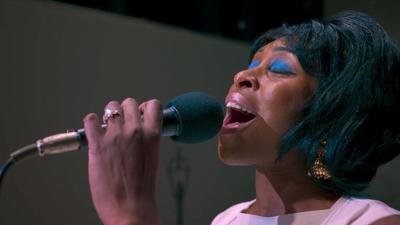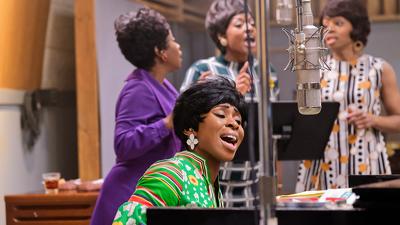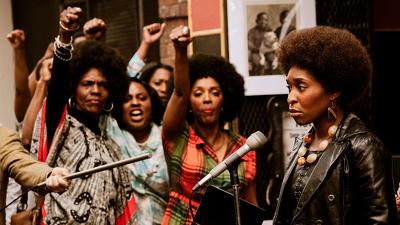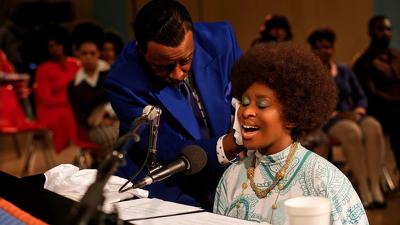Genius
Season 3
s03e01 / Aretha: Respect
22nd Mar '21 - 1:00am
Desperate for a hit, Aretha travels to Muscle Shoals in 1967 to record her first album with Atlantic Records. After suffering the loss of her surrogate mother, Little Re braves her first solo in 1953, in her father's, C.L. Franklin, church.
s03e02 / Aretha: Until the Real Thing Comes Along
22nd Mar '21 - 2:00am
Struggling to find her sound, Aretha catches the attention of Jerry Wexler at Atlantic Records in 1966. Meanwhile, Little Re has her first touring experience on the Gospel Circuit in 1954 with C.L. Franklin and meets her idol, Clara Ward.
s03e03 / Aretha: Do Right Woman
23rd Mar '21 - 1:00am
Aretha juggles her music career and her commitment to the civil rights movement, led by Martin Luther King Jr., in 1967 and 1968. Meanwhile, Little Re leaves behind her newborn child to return to the Gospel Circuit in 1955, meeting with music legends James Cleveland and Little Sammie Bryant.
s03e04 / Aretha: Unforgettable
23rd Mar '21 - 2:00am
Aretha is featured on the cover of Time Magazine in 1968, but she's devastated when the article focuses on the scandalous details of her personal life. Barbara Franklin and Young C.L. Franklin struggle to establish themselves in Memphis in 1941, before Little Re is born.
s03e05 / Aretha: Young, Gifted and Black
24th Mar '21 - 1:00am
Aretha, inspired by Angela Davis and the Soledad Brothers, records her protest album "Young, Gifted and Black" in 1970. Despite Jerry Wexler's uncertainty, the album is a success. Barbara Franklin makes a decision that has a devastating effect on Little Re in 1951.
s03e06 / Aretha: Amazing Grace
24th Mar '21 - 2:00am
Aretha records her best-selling live Gospel album "Amazing Grace" in 1972 at New Temple Missionary Baptist Church, ignoring her sibling's pleas to record instead at New Bethel with their father, C.L. Franklin.
s03e07 / Aretha: Chain of Fools
25th Mar '21 - 1:00am
As the Queen of Soul enters the age of disco, Aretha will do anything to remain relevant-including stealing an opportunity from her sister Carolyn. She receives a GRAMMY nomination but is ultimately snubbed from winning the award.
s03e08 / Aretha: No One Sleeps
25th Mar '21 - 2:00am
Despite significant emotional losses, including a second divorce and the passing of her father in 1984, Aretha pushes herself artistically and triumphs.